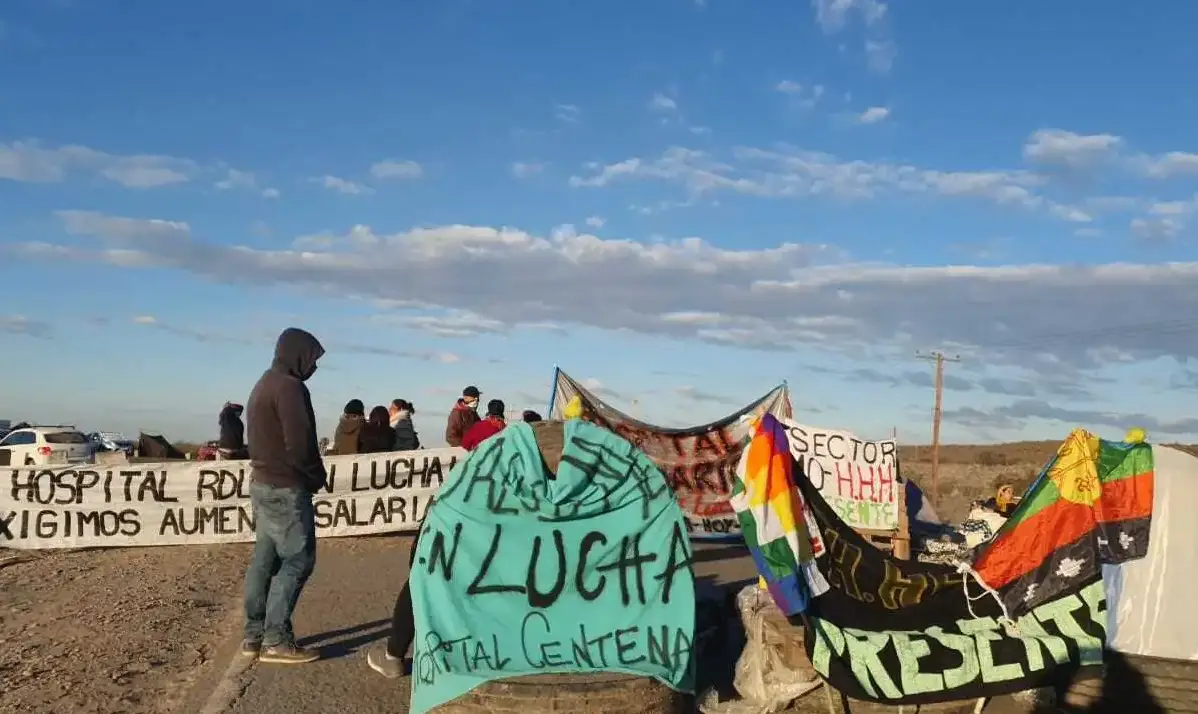Leaky gut syndrome is a condition in which the intestinal barrier loses its filtering capacity, allowing toxins and harmful bacteria to enter the bloodstream and trigger chronic inflammation. This condition offers a powerful metaphor for the Argentine province of Neuquén, home to Vaca Muerta, the country’s largest oil and gas reserve: a system that, rather than protecting itself, has become deregulated, vulnerable to corruption, injustice and insecurity—damaging the entire social body.
Symptoms of the syndrome
From an economic standpoint, the numbers are striking. In February 2025, Neuquén reached a record high in royalty revenues, driven by soaring oil and gas production. This surge gave the provincial treasury its second-highest monthly revenue in dollars over the past 17 months. Vaca Muerta now accounts for over 50% of Argentina’s gas production and nearly 45% of its oil output. International companies are pouring billions into the region and Governor Rolando Figueroa proudly promotes these figures in official campaigns. Yet, this “hyperabsorption” of resources has failed to nourish the province’s social fabric.
Just like in leaky gut syndrome, a system designed to efficiently absorb nutrients and eliminate waste is deeply dysfunctional. Public resources seep into privileged sectors, clientelist structures and frivolous expenses, while the broader population faces structural deprivation. According to Argentina’s National Institute of Statistics and Censuses (INDEC), 32% of Neuquén’s residents live below the poverty line. Despite a population of just over 730,000, access to basic services such as healthcare, education, transportation and public safety continues to deteriorate—not due to a lack of funds, but because of poor state digestion. The disconnect between production and well-being is a constant ulcer: Neuquén’s year-on-year inflation rate hit 69.7%, exceeding the national average.
The rhetoric of “Neuquinidad”—as if being from Neuquén and not aligning with it were a betrayal of the land and its resources—has become a political litmus test for access to local development. But it’s a fiction. While development is marketed as being “for Neuquén,” top jobs, contracts and awards are concentrated in firms and officials from other provinces.
As in leaky gut syndrome, there’s dysbiosis: an imbalance between what comes in and what is retained. The provincial budget is bloated with taxes, levies and parallel charges, such as the controversial “road tax,” a 4.5% surcharge on net fuel prices—one of the highest in the country. While the national government lowers fuel prices, in Neuquén they remain virtually unchanged.
The institutional body also shows signs of toxicity: corruption, impunity, selective justice, media shielding and indirect censorship. A recent case laid this bare: a massive fraud scandal in the Ministry of Social Development, where public funds earmarked for food programs were allegedly diverted to fund political clientelism. High-ranking officials are implicated, exposing systemic oversight failures. Another example is a former lieutenant governor removed from office for corruption—she had previously been the running mate of the current governor.
In March 2025, Neuquén passed a “Clean Record Law,” barring individuals convicted of intentional crimes or corruption from running for public office or holding key positions. But it remains to be seen whether this measure will be digested as a genuine reform or wither away in the judicial system.
Here’s another inflammatory data point: the provincial legislature’s approved gender budget exceeds 700 billion pesos—one and a half times that of the national Congress. While this addresses legitimate demands, it far outweighs allocations to other key areas such as public health and education. Neuquén’s legislative budget stands at 56 billion pesos, 14 times less than the gender allocation. Compared to other indices, the gender budget is nearly three times larger than that of the provincial judiciary and equals 60% of the total education budget. Resource distribution seems to follow political trends more than any thorough social diagnosis. There are no clear nutritional priorities—everything is decided according to shifting political interests.
In this context, the “Neuquén body” shows every sign of a chronic, silent illness. It moves, but sluggishly. It produces, but doesn’t absorb. It consumes, but isn’t nourished. Its immune system—organized civil society, independent journalism, oversight bodies—is weakened. And without defenses, any political infection can spread systemically.
Vaca Muerta should be Argentina’s energy heart, but today it beats erratically. And Neuquén, which should be leading an inclusive transformation, more closely resembles a lab experiment in engineered inequality. Wealth is extracted but not distributed; it’s celebrated in numbers but not in quality of life.
The cure or the disease
As in medicine, reversing leaky gut syndrome requires deep, sustained change. Announcements and placebos won’t cut it. The political system needs a reset, public administration must be redesigned, oversight must be strengthened and above all, there must be a renewed connection with the people. The same people who no longer believe in official diagnoses, but still hope for a cure.
The political menu hasn’t changed in 62 years: the Neuquén Popular Movement (MPN), from which the current governor Rolando Figueroa emerged—though elected under a different banner—continues to feed the state apparatus with the same old recipes: recycled projects, inefficient structures and a supposed “Neuquinidad” that often benefits outsiders in key posts.
The immune system key
The true immune system of a society lies in its justice system, the transparency of its governance and the coherence of its leadership. Today, Neuquén resembles a toxic body, functioning with patches, surviving on recycled promises and ignored diagnoses.
From this Patagonian corner, the question isn’t whether Vaca Muerta can sustain Argentina’s economy. The real question is whether Neuquén can sustain itself—without first reconnecting with its people, its land and its truth.
*Machine translation proofread by Ricardo Aceves.












